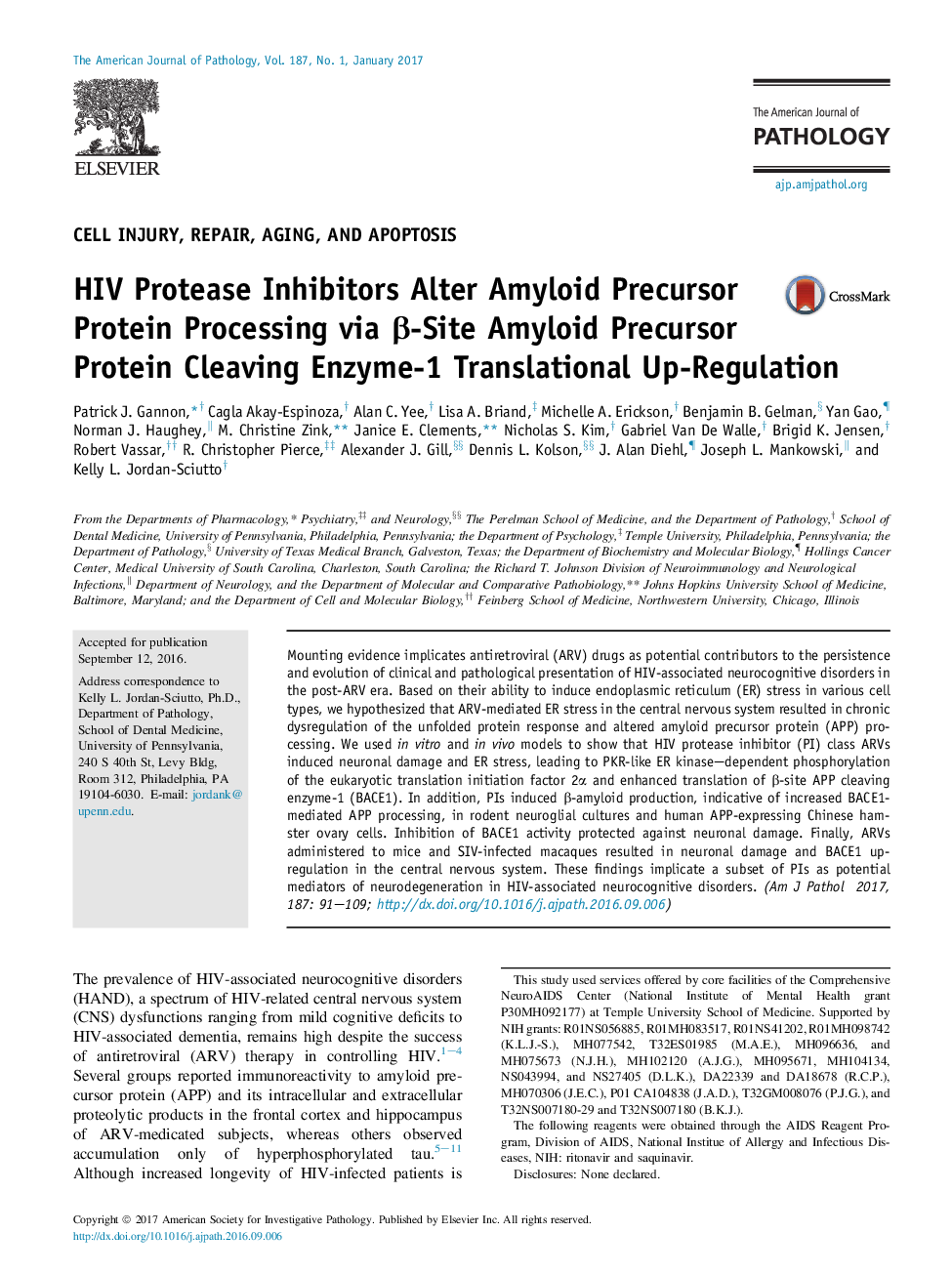| Article ID | Journal | Published Year | Pages | File Type |
|---|---|---|---|---|
| 5596140 | The American Journal of Pathology | 2017 | 19 Pages |
Abstract
Mounting evidence implicates antiretroviral (ARV) drugs as potential contributors to the persistence and evolution of clinical and pathological presentation of HIV-associated neurocognitive disorders in the post-ARV era. Based on their ability to induce endoplasmic reticulum (ER) stress in various cell types, we hypothesized that ARV-mediated ER stress in the central nervous system resulted in chronic dysregulation of the unfolded protein response and altered amyloid precursor protein (APP) processing. We used in vitro and in vivo models to show that HIV protease inhibitor (PI) class ARVs induced neuronal damage and ER stress, leading to PKR-like ER kinase-dependent phosphorylation of the eukaryotic translation initiation factor 2α and enhanced translation of β-site APP cleaving enzyme-1 (BACE1). In addition, PIs induced β-amyloid production, indicative of increased BACE1-mediated APP processing, in rodent neuroglial cultures and human APP-expressing Chinese hamster ovary cells. Inhibition of BACE1 activity protected against neuronal damage. Finally, ARVs administered to mice and SIV-infected macaques resulted in neuronal damage and BACE1 up-regulation in the central nervous system. These findings implicate a subset of PIs as potential mediators of neurodegeneration in HIV-associated neurocognitive disorders.
Related Topics
Health Sciences
Medicine and Dentistry
Cardiology and Cardiovascular Medicine
Authors
Patrick J. Gannon, Cagla Akay-Espinoza, Alan C. Yee, Lisa A. Briand, Michelle A. Erickson, Benjamin B. Gelman, Yan Gao, Norman J. Haughey, M. Christine Zink, Janice E. Clements, Nicholas S. Kim, Gabriel Van De Walle, Brigid K. Jensen, Robert Vassar,
